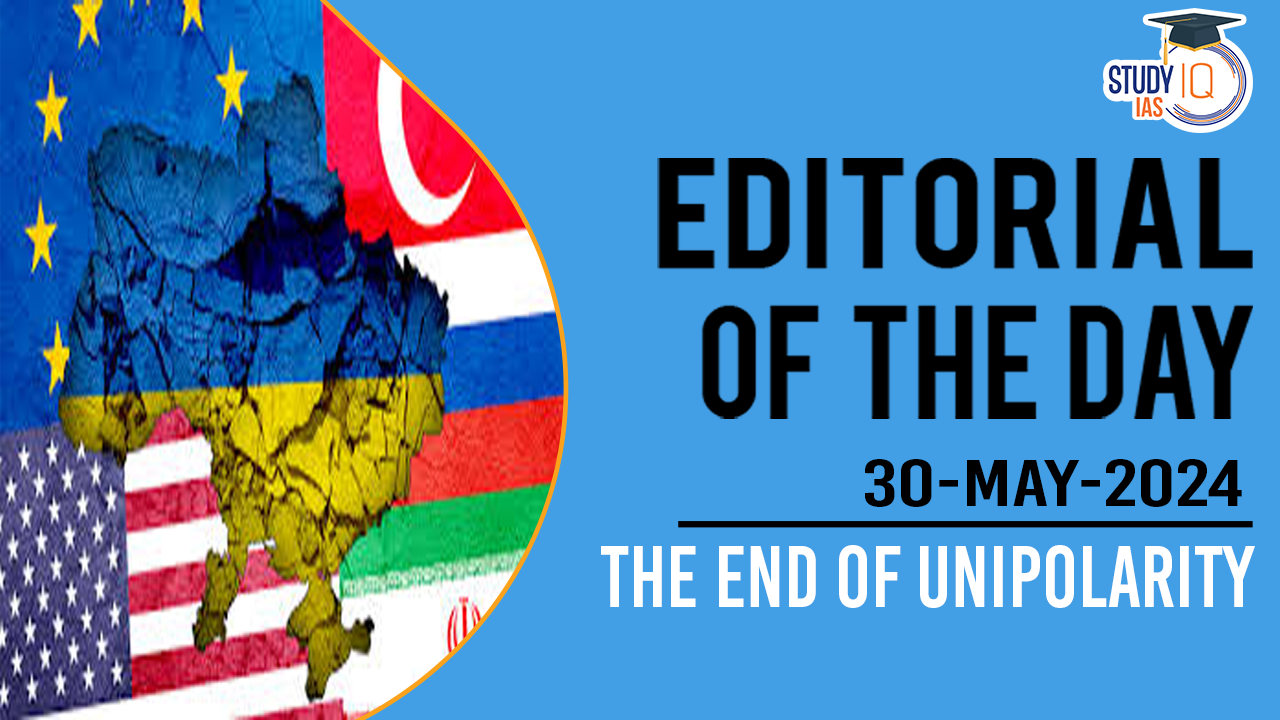Table of Contents
Context:
- Critics argued that the U.S. exhibits a double standard by condemning Russian attacks in Ukraine but not Israeli actions in Gaza.
- However, the U.S. approach to both conflicts has been similar, favouring militarization over negotiations and providing arms, funding, and diplomatic support to Ukraine and Israel.
- Both conflicts have stagnated, suggesting that neither will achieve their stated goals of total victory or the collapse of their adversaries.
Inadequacy of Traditional Political Narratives
- Conflicting Narratives: Traditional narratives fail to capture the complexity of the conflicts in Ukraine and Gaza, with accusations and counter-accusations obscuring the underlying dynamics.
- Similar US Approach: The US adopts a consistent strategy of globalisation in both conflicts, despite their differing histories and geopolitical contexts.
The Role of Globalization and Regionalization
- Paradoxes of Globalisation: The US’s attempt to globalise the conflicts in Ukraine and Gaza inadvertently leads to increased regionalization.
- Regional Focus: Russia and Hamas prioritise regional objectives, ignoring broader global considerations.
- Divided Global Response: Countries outside the US-led coalition view these conflicts through a regional lens, further solidifying their local character.
The Emergence of Neutrality in Geopolitics
- Shifting Alliances: The resurgence of neutrality in geopolitics is evident in the actions of countries like Turkey, who maintain relationships with both sides of the conflict.
- New Geopolitical Landscape: This neutrality challenges the traditional binary alliances of the Cold War era.
- Turkish Example: Turkey’s engagement with both NATO and Russia, along with its nuanced stance on Israel, exemplifies this new geopolitical approach.
The Regionalization of International Conflict
- Regional Containment: Calls for ceasefires and neutrality highlight the regional nature of these conflicts and the potential for containment.
- Challenge to US Dominance: This regionalization challenges the US’s unipolar dominance and necessitates adaptation to new local orders.
- Undermining the Abraham Accords: The regional focus undermines the Abraham Accords and the US’s attempts to maintain global control.
The Collapse of Global Politics
- Regionalization vs. Globalisation: The end of the Cold War did not lead to a new era of global politics but rather a fragmented regional landscape.
- Failed US Strategy: Attempts to re-globalize politics through military intervention have proven ineffective, revealing the limitations of US hegemony.
- New Challenges: The US must now confront the challenges posed by a regionalized world order, adapting its strategies to maintain relevance in the 21st century.
The Future of the International Order
- Regional Balance of Power: The future of the international order may lie in establishing a balance of power among regions and middle powers.
- Moving Beyond Unipolarity: This new order would acknowledge the complex and localised nature of contemporary geopolitics, moving beyond the traditional frameworks of the Cold War and unipolar dominance.
- Complex Path to Peace: While regionalization may offer a path away from global conflict, it does not guarantee peace, necessitating new approaches to international relations and diplomacy.


 GPS Spoofing and Its Impact in India: A ...
GPS Spoofing and Its Impact in India: A ...
 Amrit Gyaan Kosh Portal: A Comprehensive...
Amrit Gyaan Kosh Portal: A Comprehensive...
 UpLink Initiative: Launched by World Eco...
UpLink Initiative: Launched by World Eco...





















